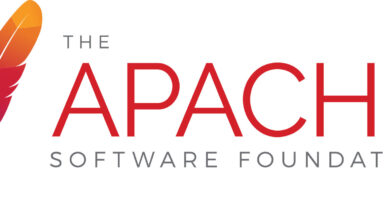Best Free Data Science Courses in 2024

Data science is one of the most demanding occupations in today’s fast-growing technological industries. Data science melds domain specializations, coding abilities, and proficiency in mathematics and statistics to analyze data. For those who are starting and those who want to level up their skills, there are many courses to try out for all these types. In this article, we will list some of the free and paid data science courses you can choose in June 2024.
Why Learn Data Science?
Data scientist jobs are in great demand because companies across the world are shifting towards a more data-driven approach. Data Scientists are indispensable when it comes to decision-making and formulating strategies based on the analysis of large data sets in an organization’s functional processes, products, and services. That way, upon mastering the profession of a data scientist, the available work offers are numerous and extend to various sectors of focus, such as technology, finance, healthcare, and many others.
Here are the main guidelines for choosing data science courses
When selecting a data science course, consider the following factors:
Course Content: Check that the topics being taught are statistical foundations, programming languages (Python or R), machine learning, data visualization, and data pre-processing.
Instructor Expertise: It is also essential to consider the accreditation of the instructors in some contexts.
Hands-on Projects: The general advice is that the more practical experience one acquires of the subject matter, the better. Seek out a course with projects or labs if you want to get your hands on real equipment.
Flexibility: Based on your timetable and the type of courses you chose, try to think of classes that have flexible approaches to the speed and time that learning occurs.
Certification: Some courses require certificates upon completion, and these are important when preparing resumes.
Best Free Data Science Courses
1. IBM Data Science Professional Certificate
Platform: Coursera
Duration: Approximately 11 months
Cost: General admission, but you can choose to pay for certification at the end of the course.
Description: It is an extensive course that introduces students to data science and enables them to practice using different data science tools and libraries offered by IBM. The proposed course comprises the main definitions and respective modules, including Python, data analysis, data visualization, machine learning, and others. The problem-solving activities and tasks used in this course will benefit those learners who have never set foot in a programming environment and those learners who wish to revise basic concepts.
2. Data Science MicroMasters Program
Platform: edX (MITx)
Duration: 1 year
Cost: It is open to anyone to take, although the certificated course is available for a fee.
Description: This MicroMasters program, provided by MIT, provides important foundations in data science. It teaches about probability, statistics, data analysis, and even machine learning. The program is intensive and offers a good theoretical background; therefore, it is ideal for anyone planning to have a career in data science or continue their studies.
3. Data Science Specialization
Platform: Coursera by Johns Hopkins University
Duration: 11 months
Cost: Free for all participants (but there is an option to purchase a certificate)
Description: This program of 10 courses in total provides a comprehensive overview of the data science process, starting with data acquisition and data cleaning to data analysis and data visualization. Instructors develop the courses from Johns Hopkins University, and the lessons are accompanied by practical tasks using the R programming language. It is best for learners who have no prior programming experience or those who are just entering the profession.
4. Kaggle Learn
Platform: Kaggle
Duration: Self-paced
Cost: Free
Description: Kaggle Learn includes a series of short educational modules that cover basic and advanced data science topics, such as Python programming, machine learning algorithms, data visualization, etc. These courses can be taken in small portions, which makes them suitable for learners with tight schedules and those who wish to concentrate on certain abilities or applications.
5. Introduction to Data Science
Platform: Udacity
Duration: 2 months (up to 10 hours per week)
Cost: Free
Description: This popular course offered by Udacity covers data manipulation, analysis, and visualization using the Python programming language. It is a good starting point for data science students, as it discusses the main concepts and approaches.
Paid Data Science Courses
1. Data Science Bootcamp
Platform: Springboard
Duration: 6 months
Cost: $7,500 (for job placement).
Description: Springboard’s Data Science boot camp is project-based and comes with a mentor with whom one can speak directly. The topics of the course are Python, data preprocessing, statistics, machine learning, and so on. Since the program guarantees a job after completion, it is suitable for anyone who wishes to be a data scientist soon.
2. Professional Certificate in Data Science
Platform: edX (Harvard University)
Duration: 1 year
Cost: $991. 20
Description: This is so because Harvard University’s Professional Certificate in Data Science consists of nine courses, which focus on R programming, data visualization, probability, inference, and machine learning, among others. This structured course is, therefore, well suited for those whose objective is to gain a wide-ranging education in data science, whether that is for personal development or professional purposes, as it is for those who have at least some prior knowledge of the discipline.
3. Data Science and Machine Learning Bootcamp
Platform: Udemy
Duration: 25 hours
Cost: $199. 99 (often discounted)
Description: Despite it being an introductory Level Udemy course, a broad spectrum of topics, including basic Python, numpy, pandas, visualization techniques, and numerous machine learning algorithms, are taught. With more than 25 hours of video, it is a way to gain practical experience and is oriented both for those who have no experience at all and for those who have already learned the basics of programming.
4. Applied Data Science with Python Specialization
Platform: This paper focuses on the discussion of Coursera, Stanford University, and the University of Michigan.
Duration: 5 months
Cost: $49/month
Description: This specialization includes five courses associated with data science and programming in Python. They include data visualization methods, supervised and unsupervised learning techniques, natural language processing, and social network analysis. The program is thus for learners with at least some level of prior programming experience and skills, which will offer them practical exposure to real-world data science problems.
5. Data Science Certificate
Platform: DataCamp
Duration: Self-paced
Cost: $25/month (basic), $33. 25/month (premium)
Description: DataCamp, for that reason, has an organized course on data science learning trail that boasts more than 80 courses on Python programming, data manipulation, statistical modeling, and machine learning, among other courses. It gained popularity for its competency-based education delivery model that emphasizes practical application and integration of exercises and projects.
Selecting a proper course of study is not easy, and it mostly depends on the learner’s interest: Selecting the correct data science courses can only be determined by one’s current aptitude, knowledge acquisition inclinations, and professional objectives.
Here are some tips to help you make the best choice:
Assess Your Current Skills: If you are still a newbie, try to enroll in freshman courses that include introductory topics. If you wish to gain deeper knowledge, you can advance to subsequent levels of courses or to specialization.
Consider Your Learning Style: It is often the case that training programs are presented in two models: self-paced and with set deadlines. Quite the learning style that you prefer when choosing the mode of your course.
Look at the Curriculum: Make sure that all the topics to be covered in the course should meet your preferences. Click here to read the syllabus and be sure of what you are signing yourself into before enrolling.
Check Reviews and Ratings: Look at peers’ opinions to see what quality they have achieved in the course and how the instructor explains things.
Evaluate the Cost: According to the relative cost of the course in relation to one’s means, reflect on the affordability of the course. Some paid courses have provisions to pay the course fee either through a scholarship program or some installment system.
Conclusion
Data science is a continuously advancing and vast field that presents a lot of potential for those with relevant experience and an appropriate education. Whether a learner is learning for the first time or wants to expand his or her knowledge to acquire a better position, the market provides numerous free and paid courses that one can take to help him or her advance. In this article, the above-listed courses indicate that one can obtain an initial degree of flexibility as well as progress evenly through more difficult levels.
FAQs
What prerequisites do I need to meet to enroll in these data science courses?
To enroll in data science courses, you typically need a bachelor’s degree in a related field, such as computer science or mathematics, with a solid foundation in subjects such as statistics, mathematics, and computer programming.
Do these courses provide certificates upon completion, and do employers recognize them?
Yes, these data science courses provide certificates upon completion, and they are recognized by employers, offering valuable credentials for career advancement.
Do these data science courses include interactive elements like virtual labs or live sessions?
Yes, these data science courses often include interactive elements like live sessions, virtual labs, and hands-on projects to enhance learning experiences.
Are the course schedules flexible enough to accommodate working professionals?
Yes, the data science courses mentioned offer flexible schedules that can accommodate working professionals, with options for part-time, self-paced, and evening classes.



